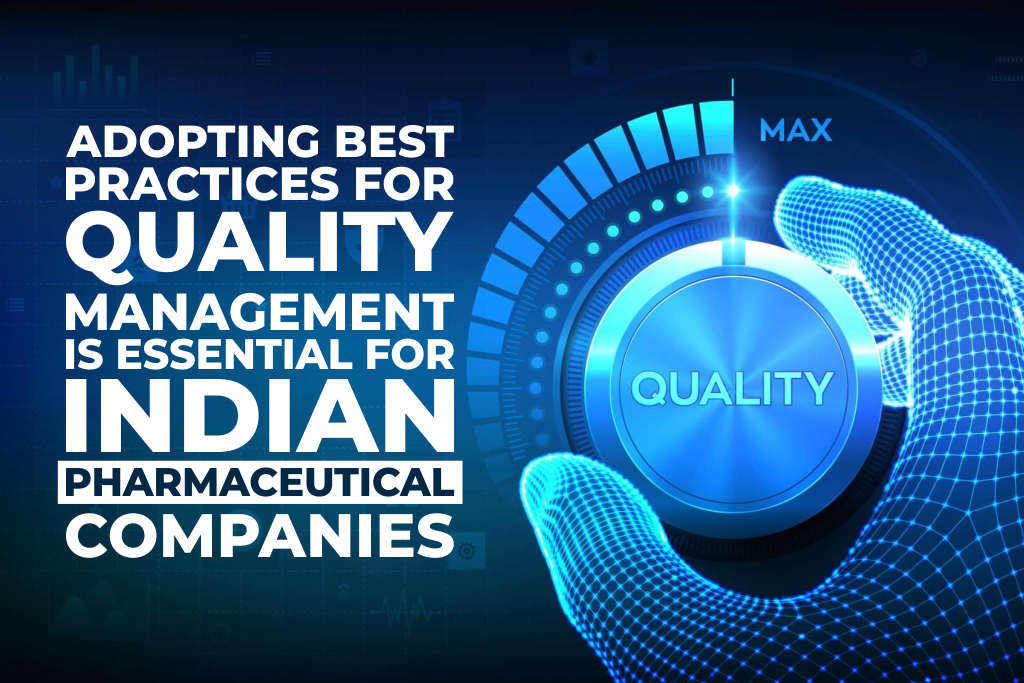
Implementation of quality management services is becoming mandatory in many industries, but following best practices for quality management in the pharmaceutical industry is essential. When it comes to the pharmaceutical industry, the patient’s health is directly concerned.
Therefore, it is crucial to follow quality standards from the initial manufacturing stages to the final product delivery. Quality management runs on defined processes and procedures, which provides a structure to the organization and improves the efficiency and services of pharmaceutical companies.
Although purchasing software and implementing quality management is an extensive and expensive process, the Indian pharmaceutical companies need to adopt quality management services for long-term benefits and stay updated with the guidelines to comply with the FDA, ISO, EMA, etc.
Boons of following QMS (Quality Management Services):

Increasing Cost-effectiveness
QMS gives a systematic approach and gap analysis to handling issues and enhances product quality, productivity, and profits. Completing work in a stipulated time frame is the primary goal of any company, and here, Quality Management Services play a pivotal role in fulfilling this requirement. With advanced QMS, chances of rework, errors are mainly nullified, resulting in no wastage and thus saving money.
Minimizing errors
Companies can mitigate risks and minimize errors by implementing QMS. With advanced QMS, employee roles and responsibilities are identified precisely, resulting in constructive communication. Moreover, step-by-step analysis prevents mistakes in project completion.
Prioritizing Customer Satisfaction
Pharmaceutical companies are serving for the betterment of humans, and hence customer satisfaction is on top priority for them. For increased sales and profits, customer feedback on quality is essential. QMS gives an advantage of delivering high-quality products to customers and satisfying the business needs of the company.
Ease of Management provides Superior Quality Standards:

An efficient QMS gives management control over the following:
1) Documents
2) CAPA (Corrective and Preventive Actions)
3) Training systems
4) Audits
5) Risks
Moreover, QMS encourages to stay constantly updated with the latest technologies and implementation of quality standards.
Employee Involvement
With the help of QMS, employees can sufficiently manage multiple products and procedures. In addition, employee training on the QMS allows for reducing errors and wastage. QMS helps channelize employees from top management to the base level and clarifies work, resulting in increased work efficiency.
Repercussions of not following Quality Management practices:
The quality management system is expensive but at the same time creditable factor for the pharmaceutical company. Noncompliance with QMS can lead to significant risks and fallout and even a roadblock for receiving an ISO certificate. Entire product life cycle and procedures can face challenges if QMS is not followed correctly and can result in the following inconsistencies:

1) Loss of management over documents: Documentation in the pharmaceutical industry is an integral part of the processes involved. Without QMS document development, review, and approval procedures lose their accountability and control over the product quality.
2) Compromise on customer satisfaction: If the company does not follow QMS, it will likely lose a competitive advantage due to quality issues.
3) Obstructs opportunities for business expansion: Most companies use QMS in their daily operations, so they require their suppliers to follow the same. If the companies do not follow QMS, they limit their future contracts and growth in the market.
4) Wastage of resources: Manual procedures lack refinement and include more human errors, limiting the continuous improvement process. Employee coordination also remains ineffective, with deficient QMS resulting in less productivity.
Conclusion:
We have discussed the advantages of QMS and the repercussions of not following QMS in detail. To summarize, QMS helps achieve business goals, overcome issues, and focus on quality and customers. With a series of regulatory compliances in place at NEWEDGE Overseas, we take over the responsibility of quality management for our clients.
With processes in place for guidelines and regulation tracking, we fulfill this responsibility and ensure that the process becomes seamless and cooperative for our clients. Our promise of quality extends itself to accommodate the promise of timely delivery and cost-effectiveness.